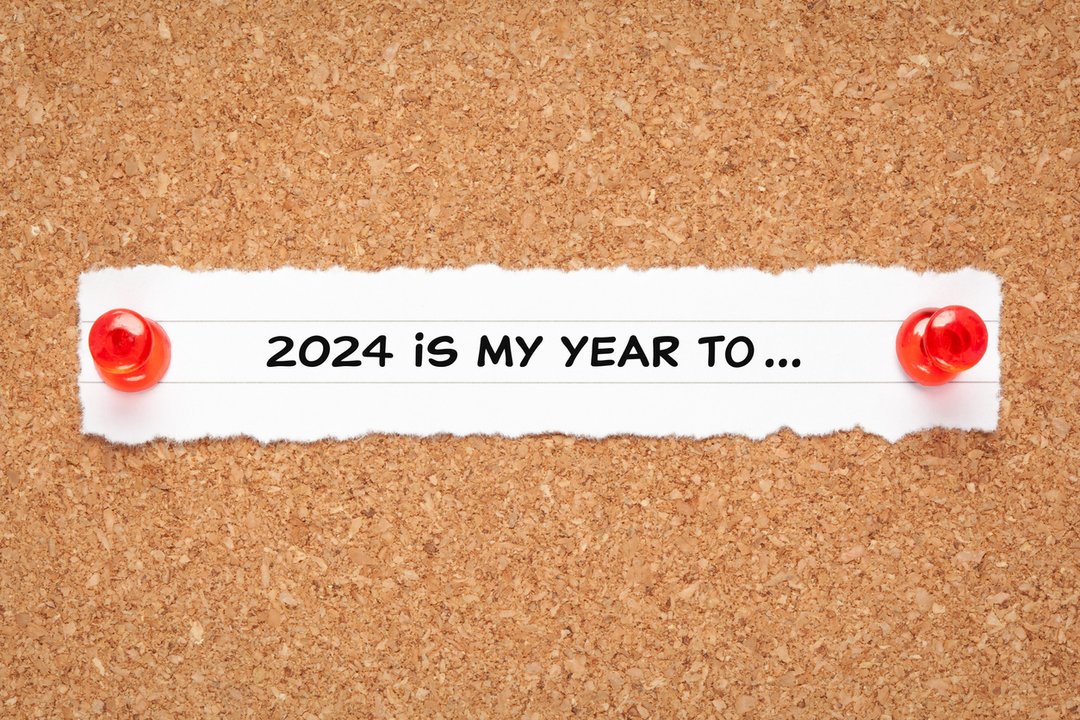
Jemima Kelly
Dec. 28, 2023
Setting goals for the upcoming twelve months is much more achievable — and much more fun.

iStock-1772706449
New year’s resolutions and I have a long history together, and it is not a very happy one. There have been years when I’ve given them up as early as January 1, a few times that I’ve made it all the way to February, but I’ve never made it as far as March.
Embarking on a life of abstinence and asceticism at the bleakest time of year — and often on the year’s biggest hangover, too — somehow never proved to be much of a recipe for success. And so it was that about a decade ago, I parted ways with the whole concept. If I really wanted to be healthier, wealthier and just an all-round better person, I could work on those things in other ways at some other time of the year.
It seems I wasn’t the only one. According to a YouGov poll last week, just 16 per cent of Britons intend on setting any resolution for 2024 (women are almost 50 per cent more likely to be doing so than men), down from 63 per cent in a YouGov poll in 2015. Nor am I the only one with a dismal record: research suggests most people give up their resolutions in the first month, with the second Friday of January the most common day to give up, according to one study.
But the problem with embarking on some new project or regime at a different time of year is that it doesn’t carry the kind of momentum or sense of starting again that a brand new year can bring. Neither does it tend to come directly after the kind of break from the normal routine and space for reflection that the festive period can offer (in between massive family ding-dongs, of course). Often, in practice, it doesn’t actually happen.
I felt like I needed some kind of new year-themed alternative, and in late 2020, during a depressing lockdown, I came across one on the Happier with Gretchen Rubin podcast. Rather than making one or two gruelling resolutions, I could come up with a much more fun and creative “21 for 2021” list of 21 things that I would like to do over the coming twelve months (adding one annually to match the year). I think of these things as goals, though Rubin herself, the podcast’s co-host and bestselling author of several books including The Happiness Project, tells me she prefers the word “aims”, because “even if you don’t get all the way there, you can move in the right direction”.
What they are not are resolutions. The key psychological difference, for me, is that none of these goals are things that can be “broken” if and when you slip up — you give yourself the whole year to achieve them. Rubin suggests having a pre-determined number of goals that you’re allowed to tweak, so you don’t feel you’ve failed if you do need to make some changes. (I find making about a quarter of the list tweakable works well).
Having so many of them also takes the pressure off any one goal, allowing you to think of ways you’d like to improve your life in ways outside of the usual “exercise more, eat more healthily, save some money” categories. Some of the goals can (and I think should) be related to sheer hedonistic enjoyment. And Rubin also encourages using the number of the year in your individual aims — this year I set myself goals of reading 23 books and making 23 new recipes (I am on track, thanks to some end-of-the year cramming) — and suggests having one or two that you could tick off on the first day or week so as to feel encouraged.
“Lots of people have very bad associations with new year’s resolutions, or they think they’re arbitrary so they don’t feel like doing them,” says Rubin. “Using the number of the year for the list is so obviously arbitrary that people just see it as a playful element. . . It makes a huge difference to frame things differently. It just seems to unlock a different part of your nature.”
It’s important not to make the goals too vague, or to aim for things that we cannot ourselves control. As management consultants teach, “Smart goals (Specific, Measurable, Action-oriented, Reasonable and Time-bound) tend to be the most effective kind. And while studies have shown that “approach-oriented goals” are more likely to succeed than “avoidance-oriented” ones, the latter are often just as important — if not more so — than the former (going for runs might be great for your heart but quitting smoking could be even better).
Of course, you still might not manage to tick off everything on your list. I am on course to reach 13 of my 23 this year — a slight improvement on last year (11.5 out of 22), which in turn was an improvement on the previous one — but the fact that I am getting better motivates me to try even harder next year. Trust me: it’s nice to be able to start the year without feeling like a failure. So, scrap your tedious resolutions and make a 24 for 2024 list instead.
Copyright The Financial Times Limited 2025
© 2025 The Financial Times Ltd. All rights reserved. Please do not copy and paste FT articles and redistribute by email or post to the web.
This article was legally licensed by AdvisorStream


